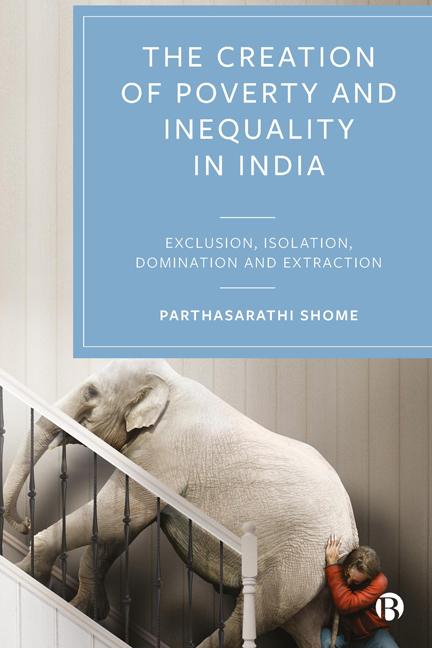Book contents
- Frontmatter
- Dedication
- Contents
- List of Figures and Tables
- Preface
- 1 Introduction
- Part I Macro-Economy and Human Development
- Part II Sources of Inequality and Poverty
- Part III Sectoral Effects
- Part IV Radical Humanism
- Appendix 2.1 Cash Use in India: A Cross-Country Comparison
- Appendix 2.2 Macro-Economic Comparisons: Selected Economies
- Appendix 4.1 Selected Country Tables
- Appendix 5.1 Evidence on Inequality in the US
- Appendix 8.1 Impact of Land Policy
- Appendix 11.1 Impact of Asset Transfer on the Poor
- Index
1 - Introduction
Published online by Cambridge University Press: 18 January 2024
- Frontmatter
- Dedication
- Contents
- List of Figures and Tables
- Preface
- 1 Introduction
- Part I Macro-Economy and Human Development
- Part II Sources of Inequality and Poverty
- Part III Sectoral Effects
- Part IV Radical Humanism
- Appendix 2.1 Cash Use in India: A Cross-Country Comparison
- Appendix 2.2 Macro-Economic Comparisons: Selected Economies
- Appendix 4.1 Selected Country Tables
- Appendix 5.1 Evidence on Inequality in the US
- Appendix 8.1 Impact of Land Policy
- Appendix 11.1 Impact of Asset Transfer on the Poor
- Index
Summary
No fellow should be richer than another, no man should exploit another, each person has value and dignity.
Kenneth Kaunda, founding President of ZambiaUndertaking a study of the poor
The objective of this volume is to identify the sources of poverty and inequality in India, to draw instances from the global experience, to analyse their manifestations and ramifications and to explore solutions for eradicating poverty and alleviating inequality. Poverty is found not to be a condition for which subsidies and the provision of work would suffice. Global examples, including India, reveal that the genesis is more fundamental, more intrinsic, more embedded, indeed, generated by deliberate events that occurred and can be traced in recorded history. Those events separated some population groups from others through identifiable means and, sometimes, by imposing conditions by decree. Identifiable sources include enslavement, racial and gender differences, as well as discrimination against the indigenous, sexual minorities if identified, religions other than that of the majority and other differences. An example of non-identifiable means that stands out is caste determined at birth which is the particular case of the Indian subcontinent. There appears to be no universal scholarly agreement whether the establishment of caste came about from the segregation of an indigenous or settled population by an invading population, its extreme manifestation being the untouchability of one person by another.
After millennia of contiguous existence, there remains little physical difference among castes. Therefore, the prevailing practice of caste is ensured by identity markers such as surnames, birthplace, or assigned occupation (see Chapter 6). Similar instances occurred in history during periods of colonialism and slavery and post-abolition periods in other societies (see Chapter 5). In every case, the process that occurred and continues to occur comprises exclusion, isolation, domination and perpetration of social and economic differences. It leads naturally to inequality and to poverty by predetermining occupations, thus curtailing the freedom to choose a profession according to one's ability or desire. In turn, this gives rise to distortions in the natural choices that would be otherwise made by the members of a society. These distortions are found to be of varied intensities and tend to lead to a society's production outcomes that are well below its potential or what economists term the ‘production possibility frontier’.
- Type
- Chapter
- Information
- The Creation of Poverty and Inequality in IndiaExclusion, Isolation, Domination and Extraction, pp. 1 - 32Publisher: Bristol University PressPrint publication year: 2023

